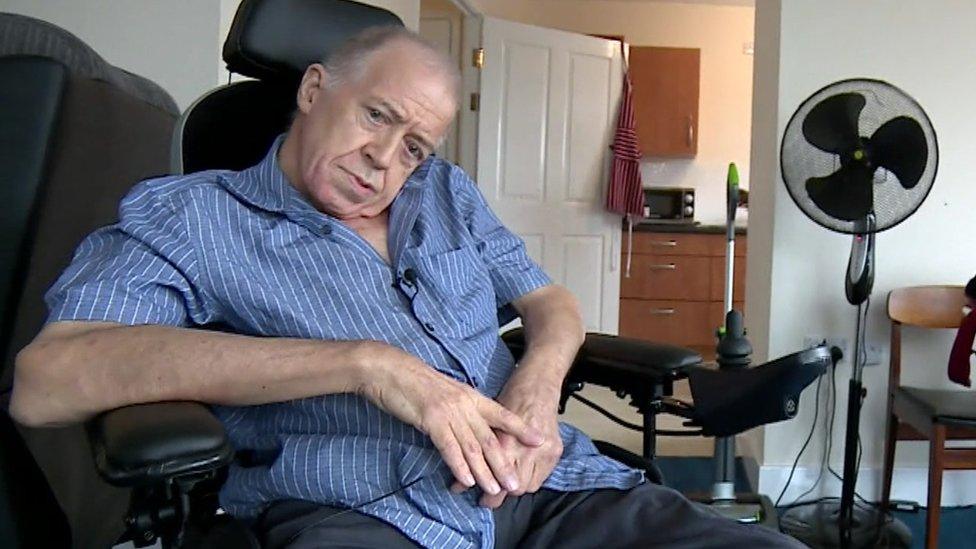The pain of waiting for a knee operation
- Published

Richard Cubis, 69, has learned to live with Parkinson's - but it's the constant pain in his knee he finds most difficult.
He was put on a waiting list for a knee replacement in May 2017. Since then, there have been four cancellations.
Had it gone ahead, he says, he would have been able to walk a little and be less reliant on his wheelchair.
"I feel left behind - I feel disgruntled I wasn't put on a priority list," he says. "I feel a prisoner in a room because I can't get out no matter how hard I try."
His local hospital said it was very sorry but it had a significant backlog of cases. It is an experience familiar to other patients.
More than 3,500 in England in June were waiting more than a year for non-urgent operations and procedures.
Four years ago, the then Health Secretary, Jeremy Hunt, said such waits were "unacceptable" and should be eliminated - the level then was 570.
Heatwave blamed for record A&E attendances in England
NHS told to target long operation waits
In a missive sent to hospitals earlier this year NHS England said: "Numbers nationally of patients waiting more than 52 weeks for treatment should be halved by March 2019, and locally eliminated wherever possible."
Yet in June alone the number increased by 400.
The target in England is for 92% of patients to have their non-urgent operations or procedures within 18 weeks.
That has not been hit for a while and in June the number waiting longer than that was above half a million, the highest in a decade.
NHS England's chief executive, Simon Stevens, has made it clear that with all the demands on the service, reducing waiting lists for routine surgery and hitting the 18-week target cannot be prioritised for a while.
Some health analysts point out that the number enduring long waits was much higher up until 2012.
With winter approaching though, it is worrying for the service that the waiting list numbers are so high.
Some of the increase reflects the fact that routine operations were cancelled in January and February because of the intense stress on the system.
That has created a backlog that has not been cleared.
The new money pledged recently to the NHS by Prime Minister Theresa May does not kick in till next year.
Some hospital leaders have already warned that the coming winter will be even tougher than last time and that more non-emergency surgery will have to be cancelled.
Those waiting and hoping for their hip or knee replacements and other operations will be experiencing continuing pain and inconvenience.
Increasing numbers of patients are resigned to cancellation and further disappointment.
Richard has now been given a new date for his operation, later this month.
He can only hope that it won't be too late to ease the pain and make a difference to his life, assuming that it does actually go ahead.